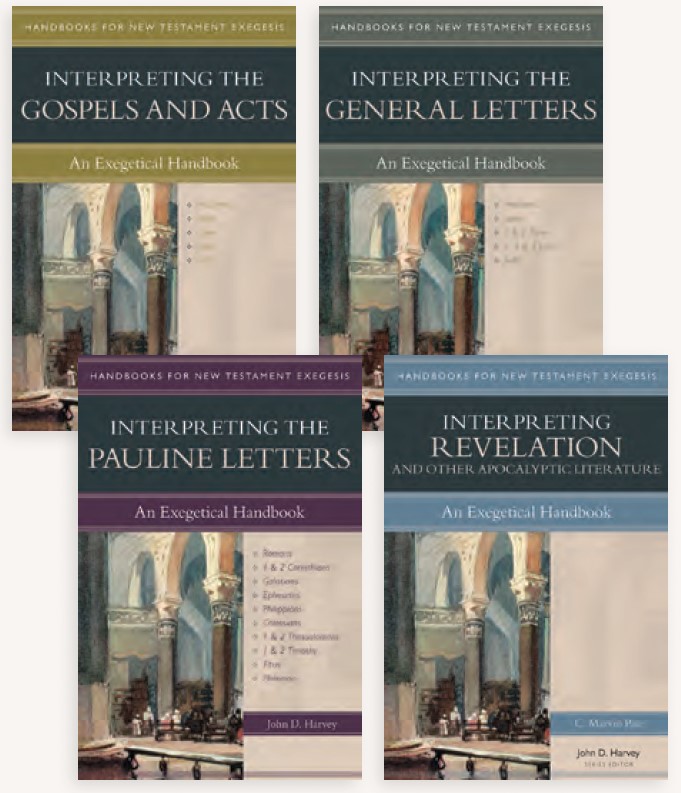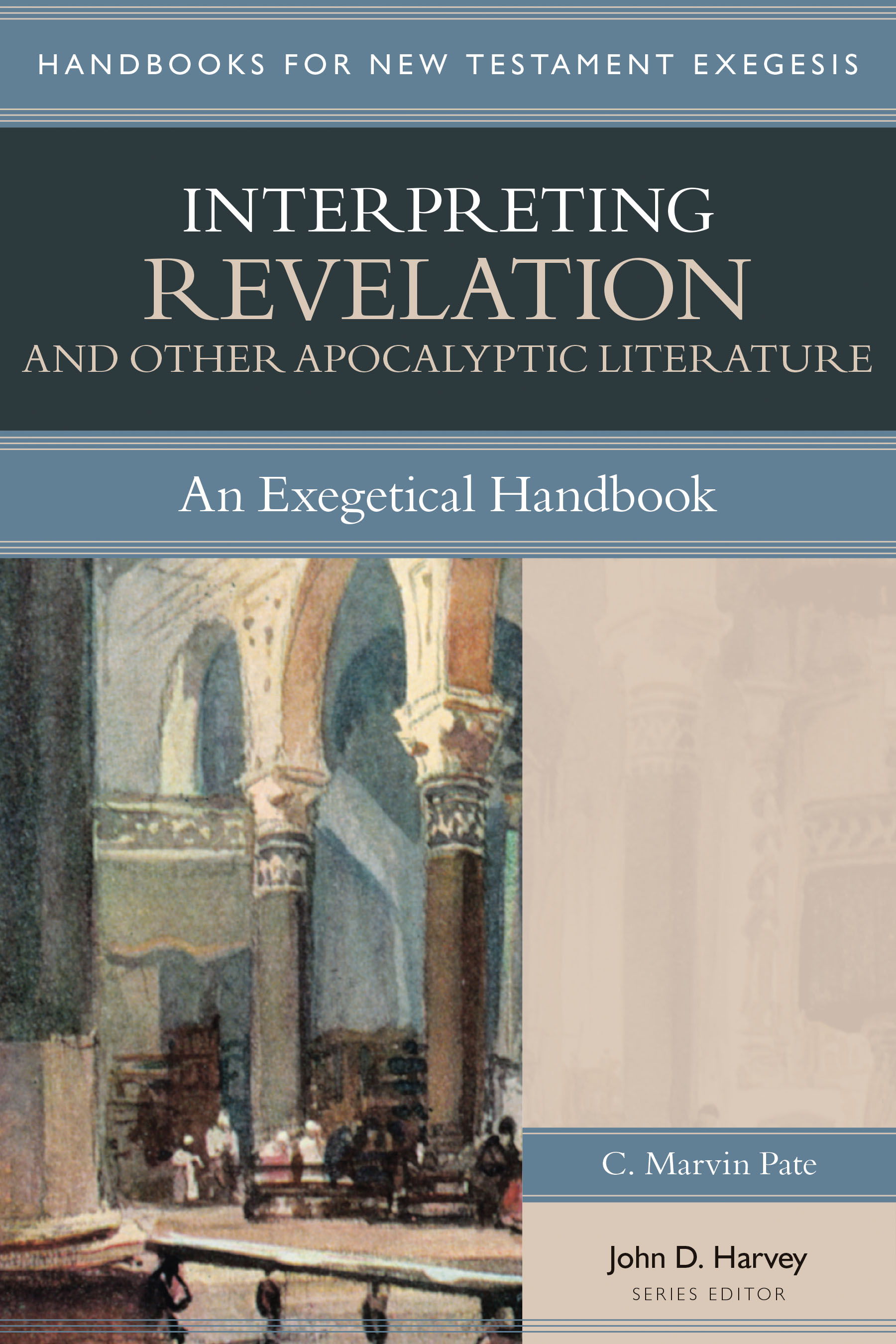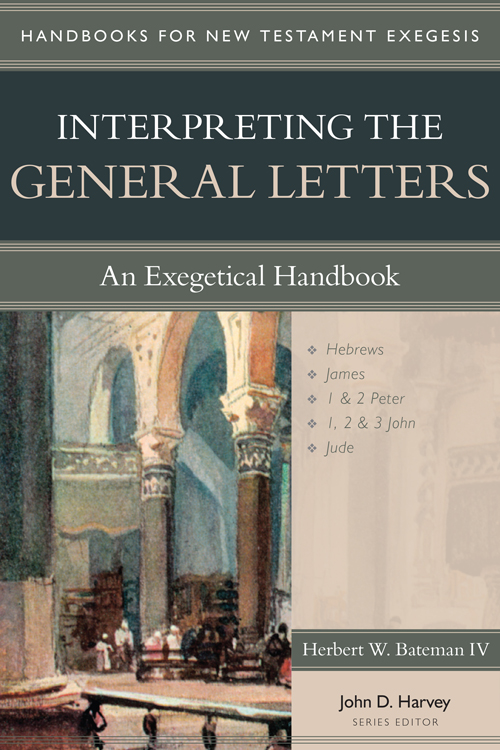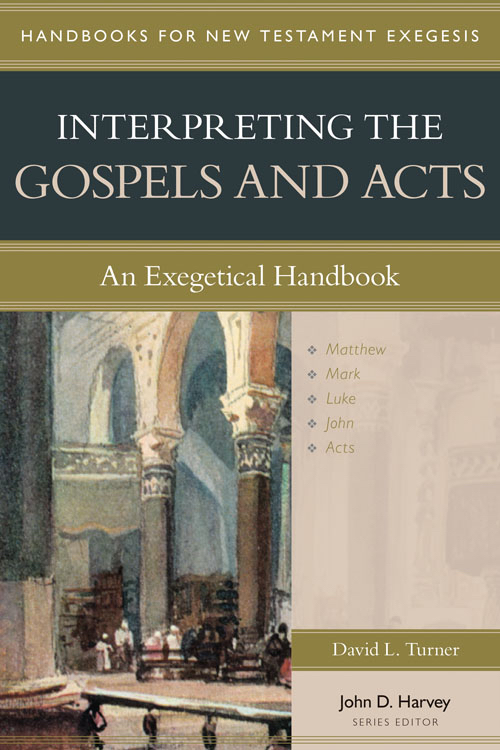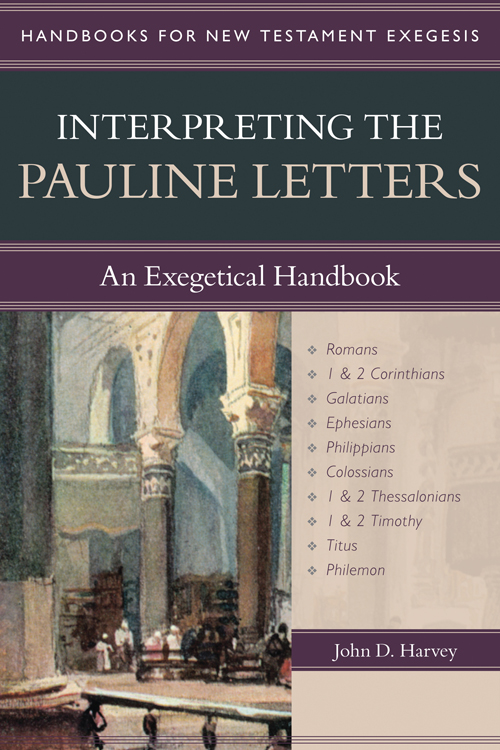-
Handbooks for New Testament Exegesis
John D. Harvey
A valuable reference tool for students and pastors, the Handbook for New Testament Exegesis series provides readers with an enhanced understanding of different New Testament genres and strategies for interpretation, following in the footsteps of the well-received Handbooks for Old Testament Exegesis series. All books in the series are written by accomplished teacher-scholars at leading evangelical...Interpreting Revelation and Other Apocalyptic Literature
C. Marvin Pate
With historic events seeming to burgeon with signs of the last days, the study of apocalyptic literature--that which is concerned with the end of history as we know it and the coming kingdom of God--has become increasingly relevant. C. Marvin Pate provides a guide to the distinctive content, form, and function of apocalyptic books for those who are interested in exegesis of biblical apocalyptic materials...Interpreting the General Letters
Herbert W. Bateman IV
A concise guide to the interpretive process for the eight New Testament general letters
This handbook is designed as a step-by-step approach for analyzing and communicating eight letters of the New Testament: Hebrews, James, the Petrine Letters, the Johannine Letters, and Jude. Interpreting the General Letters provides important background material for the interpretation...
Interpreting the Gospels and Acts
David L. Turner
A comprehensive handbook for understanding and communicating the Gospels and Acts
In this final volume of the Handbooks for New Testament Exegesis series, David Turner provides a comprehensive guide for interpreting and conveying the lives of Jesus and his early followers. Key background information such as literary genres, historical setting, and theological themes lay the groundwork...Interpreting the Pauline Letters
John D. Harvey
The inaugural volume in the Handbooks for New Testament Exegesis series, Interpreting the Pauline Letters begins by exploring the components of narrative--setting, characterization, and plot--and then develops the foremost theological themes in each of the books traditionally ascribed to Paul. The method sets the task of exegesis within the literary context of first-century letters as well...

